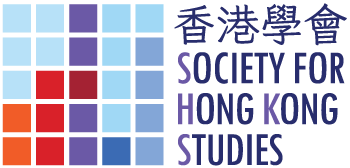- Workshops
- Workshops 2024
Work-in-Progress Workshop in Hong Kong Studies 2024 #1

Workshop 2024 #1
Date & Time: February 23, 2024, 11:00 AM -12:30 PM HKT
Format: Virtually via Zoom
Discussant: Prof. Pang Laikwan, Professor of Cultural Studies and Head of the Department of Cultural and Religious Studies, The Chinese University of Hong Kong
▸▸▸
Title: Sedimentary Planning: The Making of the ‘Squatter’ Category in Early Postwar Hong Kong, 1945-1953
Presenter: Quinton Huang, M.A. Student, Department of History, University of British Columbia
Project type: This is an evolving first chapter of an MA thesis on the postwar social history of squatter settlements in Hong Kong, projected to be around twenty (20) pages in length (excluding notes, references, and figures).
Abstract:
Existing research on Hong Kong’s postwar urban planning has fruitfully investigated the various motivating factors and external pressures that led to both a widespread public resettlement program and the toleration of squatter areas into the late twentieth century. But how did the category of ‘squatter’ come to encapsulate—and flatten—the heterogeneous communities across the British colony that found shelter in informal housing? This paper focuses on the critical yet often overlooked period immediately following the re-establishment of British control over Hong Kong. First, I demonstrate that the genesis of the postwar ‘squatter problem’ lay not just in increased immigration and limited housing stock, but also in the accumulated layers of displacement and land regimes from the precolonial, prewar, and Japanese occupation periods. I juxtapose three sets of sources—(1) bird’s-eye view mapping and photography, (2) social welfare surveys, and (3) correspondence between military authorities, colonial officials, and informally housed residents—to reveal how this process of sedimentation created uneven conceptual and physical planning boundaries. Second, I trace the contested process by which ‘squatter’ became a hegemonic category in postwar public discourse and planning policy. Not only did colonial authorities struggle to discipline informally housed residents into recognizing themselves as ‘squatters,’ but the persistence of other planning and demographic categories gave these residents opportunities to resist and complicate squatter policy. By not taking the term ‘squatter’ for granted, these findings not only raise considerations for the postwar development history of urban Hong Kong, but also the co-produced nature of ostensibly high modernist planning across the Global South.
Keywords:
Urban informality, planning, sedimentation, land regimes, displacement
▸▸▸
Title: Exilic Humanism in Cold War Hong Kong
Presenter: Faye Qiyu Lu, Ph.D. candidate, Department of Asian Languages & Cultures at the University of California, Los Angeles
Project type: This is the second chapter in the dissertation project entitled “From Chinese to Global Humanism: Cold War Cultures in Taiwan, Hong Kong, and China, 1945-1989”
Abstract:
In the Cold War era, exilic intellectuals who left China and settled in Hong Kong often articulated feelings of resentment from a superior position, or what Edward Said critiques as “the defensive nationalism of exiles.” This chapter aims to complicate this connection between exilic resentment and Chinese cultural nationalism by reexamining texts that are often considered diasporic Chinese and/or anti-Communist through the notion of “exilic humanism.” In my exploration of how Chinese humanism is contested in different real or imaginary contexts, I reveal processes of negotiations between humanisms and anti-humanisms (i.e. revolutionary and colonial violence) that are both enabled and frustrated by the “outsider” perspective in exile, thus locating moments that shed light on how Chinese exilic humanism could engage with the local cultural community in Hong Kong.
The first part of the chapter looks at New Confucianist Tang Chun-I’s conception of the “Chinese humanistic spirit” from the 1950s – 70s, focusing on his negations of anti-humanist thought in both Chinese Communism and British colonial cultural assimilation. Building on this dialectic between the Chinese humanist tradition and external forces, the second part then examines its literary representations — Eileen Chang’s Rice Sprout Song (1955) and Jin Yong’s martial arts fictions in the 1950s and 60s — with reference to the refugee crisis in Hong Kong. The third part turns to the aesthetics of violence in Chang Cheh’s wuxia film set in ancient China and analyzes its visual displacement of socio-political uncertainties and violent incidents during the 1967 riots in Hong Kong.
Keywords:
Cold War, Hong Kong, Humanism, Exile, (Anti)Colonial Violence
- Speakers
- Quinton Huang, M.A. Student, Department of History, University of British Columbia; Faye Qiyu Lu, Ph.D. candidate, Department of Asian Languages & Cultures at the University of California, Los Angeles
- Date & Time
- February 23, 2024, 11:00 AM - 12:30 PM HKT
- Location
- Zoom
- Language
- English
